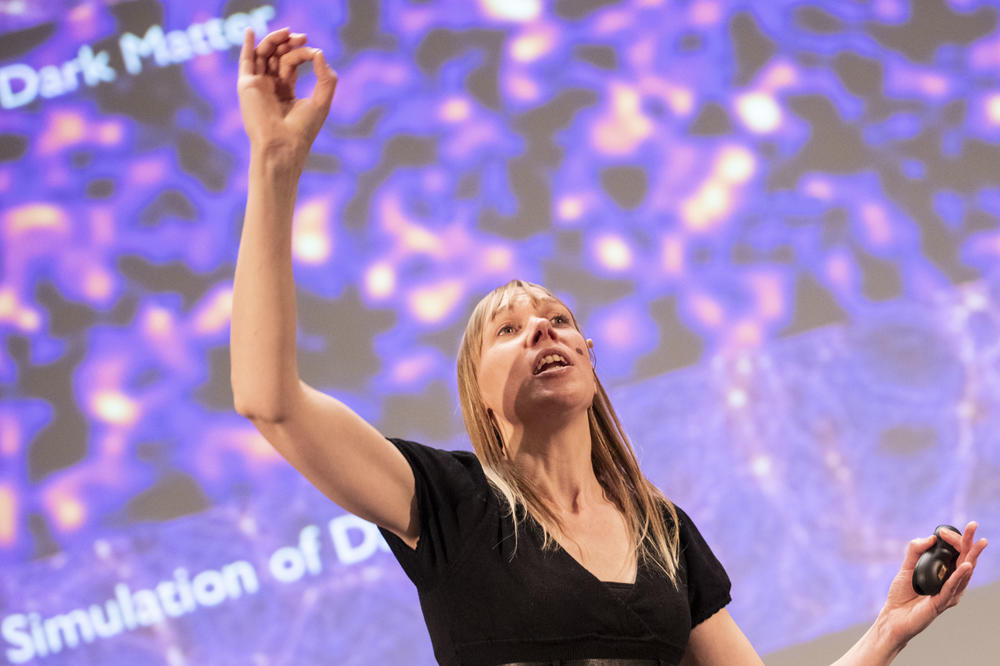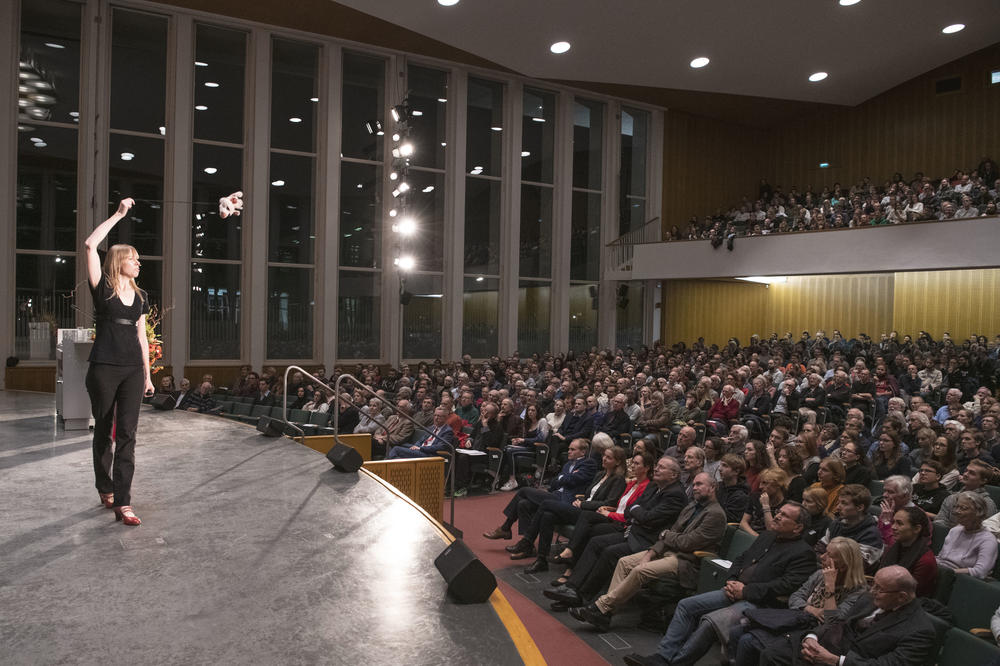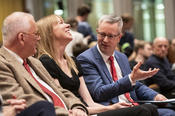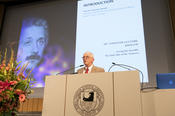Don’t Fear the Unknown
British astrophysicist Catherine Heymans held the 2019 Einstein Lecture at Freie Universität Berlin
Nov 25, 2019
Mysterious, infinite, dark. That is how space is often depicted, not just in works of science fiction, but also in academic research. Today, the only thing scientists know for sure about 95 percent of the universe is that they know almost nothing about it. For Catherine Heymans, that poses an exciting challenge. The astrophysicist from the University of Edinburgh gave the 19th Einstein Lecture to a packed audience in the Max Kade Auditorium at Freie Universität Berlin. Don’t fear the great unknown! – that is Heymans’ message to students in particular. Venturing into the unknown can completely change our understanding of the world, she says, it could lead to the next Copernican revolution. Her riveting talk before an audience of approximately 1200 people shows just how much fun this kind of basic research can be.
“If I swing my flying pig faster, I need to hold on to the string much tighter,” Professor Heymans says, using her son’s stuffed animal to explain to the crowded Max Kade Auditorium how galaxies are held together.
Image Credit: Christoph Assmann
Heymans is an astrophysics professor at the University of Edinburgh and at the forefront of scientific research on the universe, which she has studied and observed extensively in order to better understand its dark side. She is no stranger to Germany. In fact, as the director of the German Center for Cosmological Lensing at the Ruhr-Universität Bochum, she is in the country regularly. She also has connections with the Max Planck Institute for Astronomy in Heidelberg.
In Search of Dark Matter
We only understand about five percent of the universe today. The physical nature of the rest of it remains a mystery. This large enigmatic portion is made up of, what researchers call, dark matter and dark energy.
There is significant evidence indicating that both exist and that without them the universe would spin out of control. To demonstrate these relationships, Heymans did not rely on dry gravity equations, but used tangible objects instead. She tied her son’s toy pig to a string and spun it around her head. “If I swing my flying pig faster, I need to hold on to the string much tighter,” she explains.
“All attempts to detect dark matter particles have failed so far,” says Hermann Nicolai in his scientific introduction to Heymans’ lecture. He is the director of the Max Planck Institute for Gravitational Physics, where researchers follow in Einstein’s footsteps trying to advance his theory of relativity. The Max Planck Society has contributed to Dahlem’s scientific past together with Freie Universität Berlin. Since 2017, it has partnered with Freie Universität to help organize the Einstein Lecture.
Mapping the Universe
As Heymans explains, dark matter covers the galaxies in our universe like a blanket. She shows an animated map in which chains and clusters of galaxies stretch like a web filled with dark matter, which glows pink on the screen. Heymans and her team create models like this based on images taken with large telescopes. Starting in 2022, the space telescope Euclid will provide them with new images of the cosmos. Heymans is also optimistic about the Large Synoptic Survey Telescope in Chile, which will go into operation next year. Using a dense series of images, scientists will be able to visually represent the expansion of the universe, and that will play a major role in advancing our understanding of dark energy, the other great unknown in the universe. Heymans’ research engages directly with the work of Albert Einstein and could lead to groundbreaking discoveries regarding his concept of gravity.
The original German version was published on November 7, 2019, in the campus.leben online magazine of Freie Universität Berlin.




